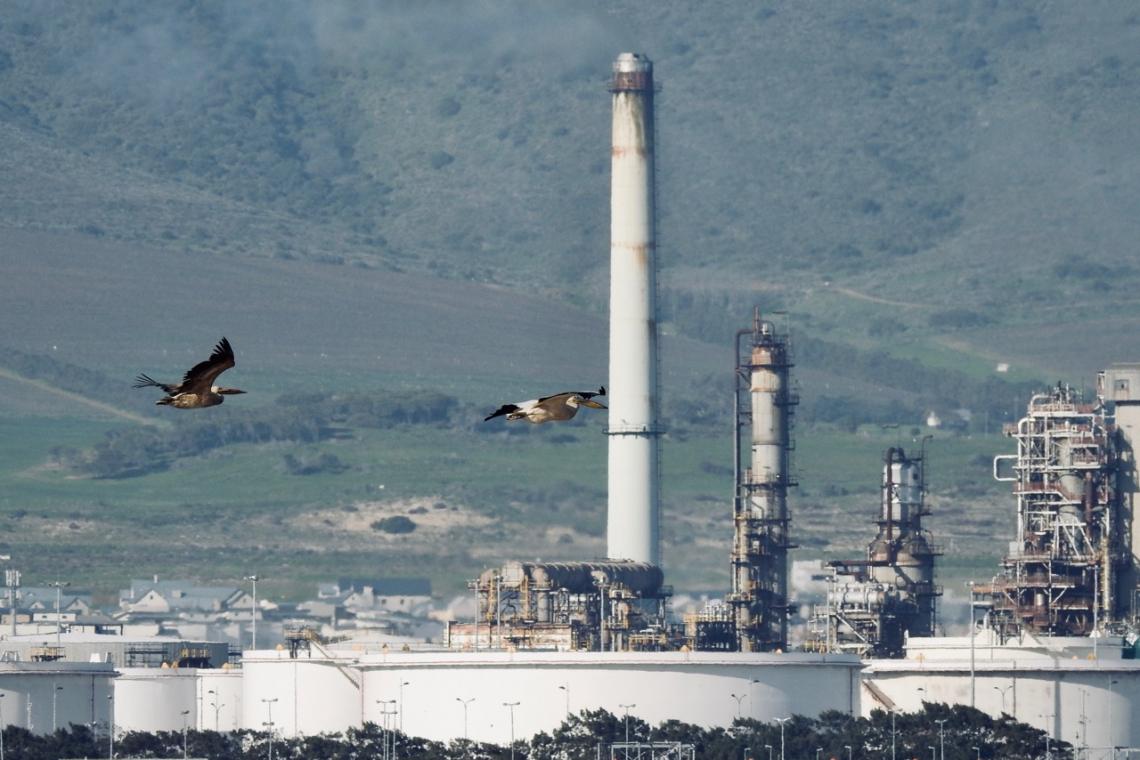“Right now we are facing our greatest threat in thousands of years, climate change."
Sir David Attenborough presented the BBC's latest Climate Change video - Climate Change: the facts. It is a fantastic video, in this article, I highlighted some key messages that came out of the broadcast and some actions we can all take.
The state of Climate change
"The scientific evidence is that if we have not taken dramatic action within the next decade, we could face irreversible damage to the natural world and the collapse of our societies. We are running out of time, but there is still hope" Sir David Attenborough.
People can see the impacts of climate change through storms, floods, heat waves, droughts and sea level rises; it is changing faster than ever imagined. Scientists agree that the current state of warming we risk devastation. A steady, steady increase of temperature with some dips is evident. The effects we are seeing today was already predicted more than 30 years ago.
"Twenty of the warmest years on record occurred in the last twenty-two years" Prof Peter Stot.
People can see the impacts of climate change through storms, floods, heat waves, droughts and sea level rises; it is changing faster than ever imagined. Scientists agree that the current state of warming we risk devastation. A steady, steady increase of temperature with some dips is evident. The effects we are seeing today was already predicted more than 30 years ago.
"Twenty of the warmest years on record occurred in the last twenty-two years" Prof Peter Stot.
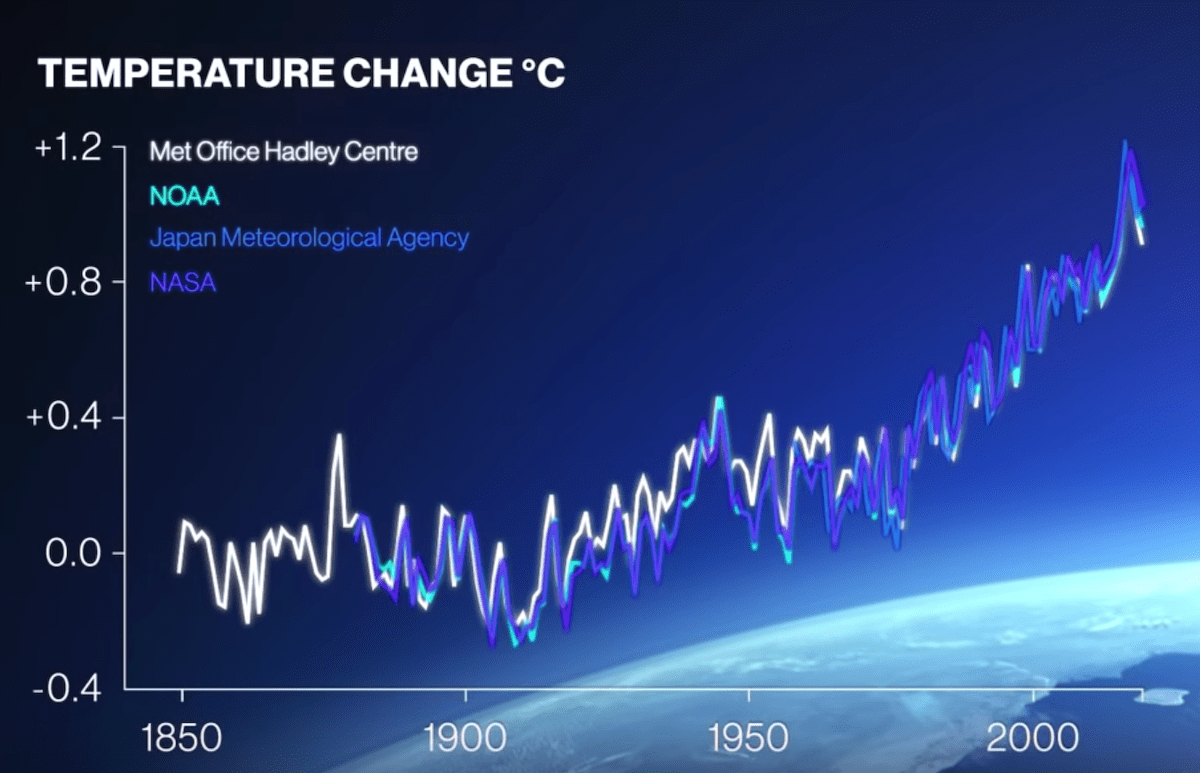
Sources of the increase temperate facts
Four decades of research on land sea and in the atmosphere indicates the evidence is unequivocal. Data from the Met Office Hadley, the US National Oceanic and Atmospheric Administration, Japan Meteorological Agency and NASA all indicate the warming trends over time.
UK heat wave has been the warmest on record. Scientists can't always say directly link the cause, but they have shown it is about 30 times more likely with climate change that that heat wave would occur. Increase heat has a devastating effect on wildlife. Nov 2018 Australia had a heat wave of 42˚C that which devastated flying fox populations when over 11000 died, another two such events could cause extinction.
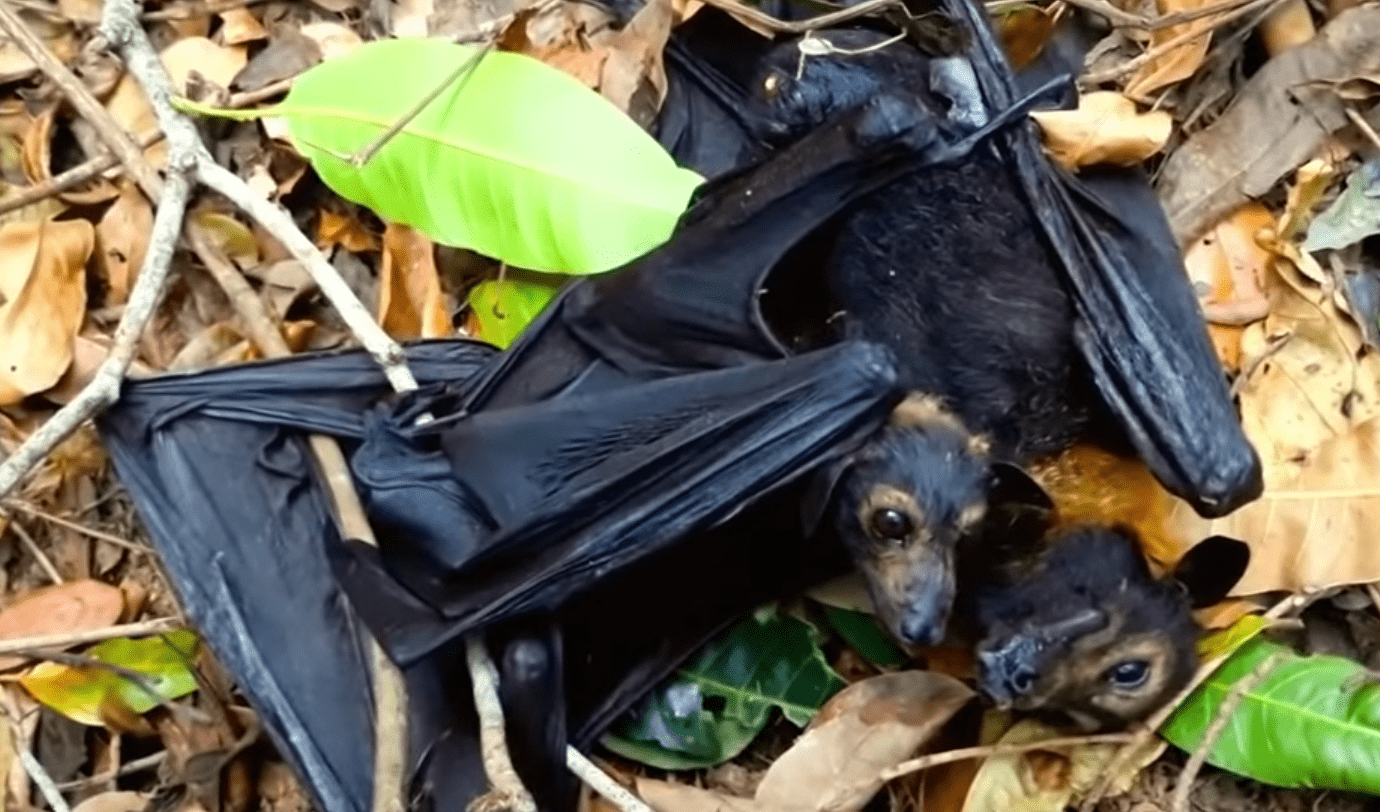
"The equator, as climate change occurs that central part of the world becomes increasingly inhabitable." Prof Catherine Mitchel.
We are already causing the irreversible extinction of species which destabilises the ecosystems and risks its collapse.
"Scientists believe 8% of species are at threat of extinction solely due to climate change." Sir David Attenborough
The economic cost of climate change is massive. 2018 showed record-breaking wildfires affecting lives, livelihoods and environmental destruction. More moisture in the air due to evaporation causes super storms and flooding events. Resulting in millions of people needing humanitarian aid
We are already causing the irreversible extinction of species which destabilises the ecosystems and risks its collapse.
"Scientists believe 8% of species are at threat of extinction solely due to climate change." Sir David Attenborough
The economic cost of climate change is massive. 2018 showed record-breaking wildfires affecting lives, livelihoods and environmental destruction. More moisture in the air due to evaporation causes super storms and flooding events. Resulting in millions of people needing humanitarian aid
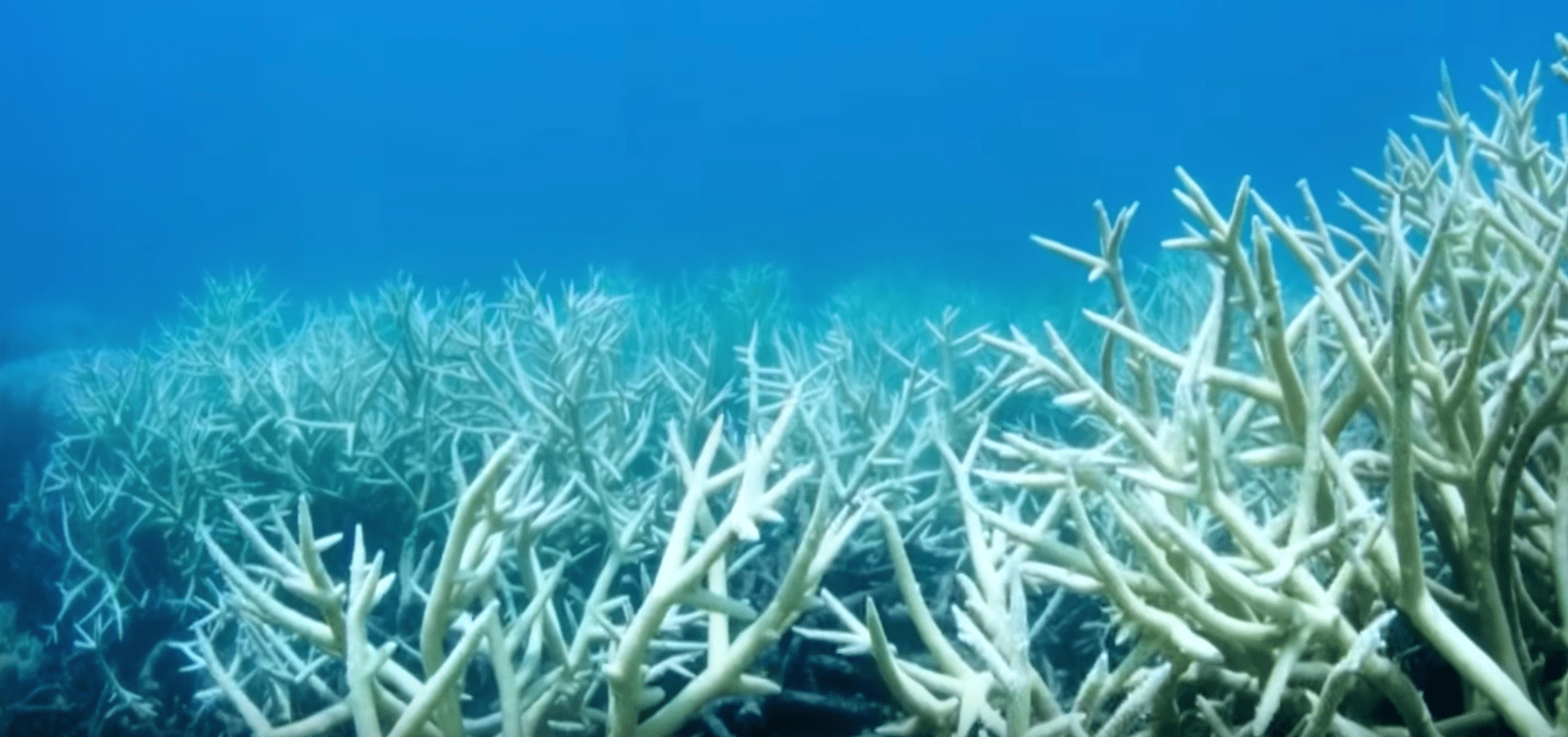
The global increase in temperature is causing ice to melt. Ice losses from Antarctica and Greenland are worse than expected.
"Greenland's is losing five times as much ice today as it lost 25 years ago... Antartica is losing three times as much ice today is it lost 25 years ago." Prof Andrew Shepherd.
The increase in sea levels because of this is already displacing people. The rise in ocean temperatures and salinity is causing Coral destruction.
"Greenland's is losing five times as much ice today as it lost 25 years ago... Antartica is losing three times as much ice today is it lost 25 years ago." Prof Andrew Shepherd.
The increase in sea levels because of this is already displacing people. The rise in ocean temperatures and salinity is causing Coral destruction.
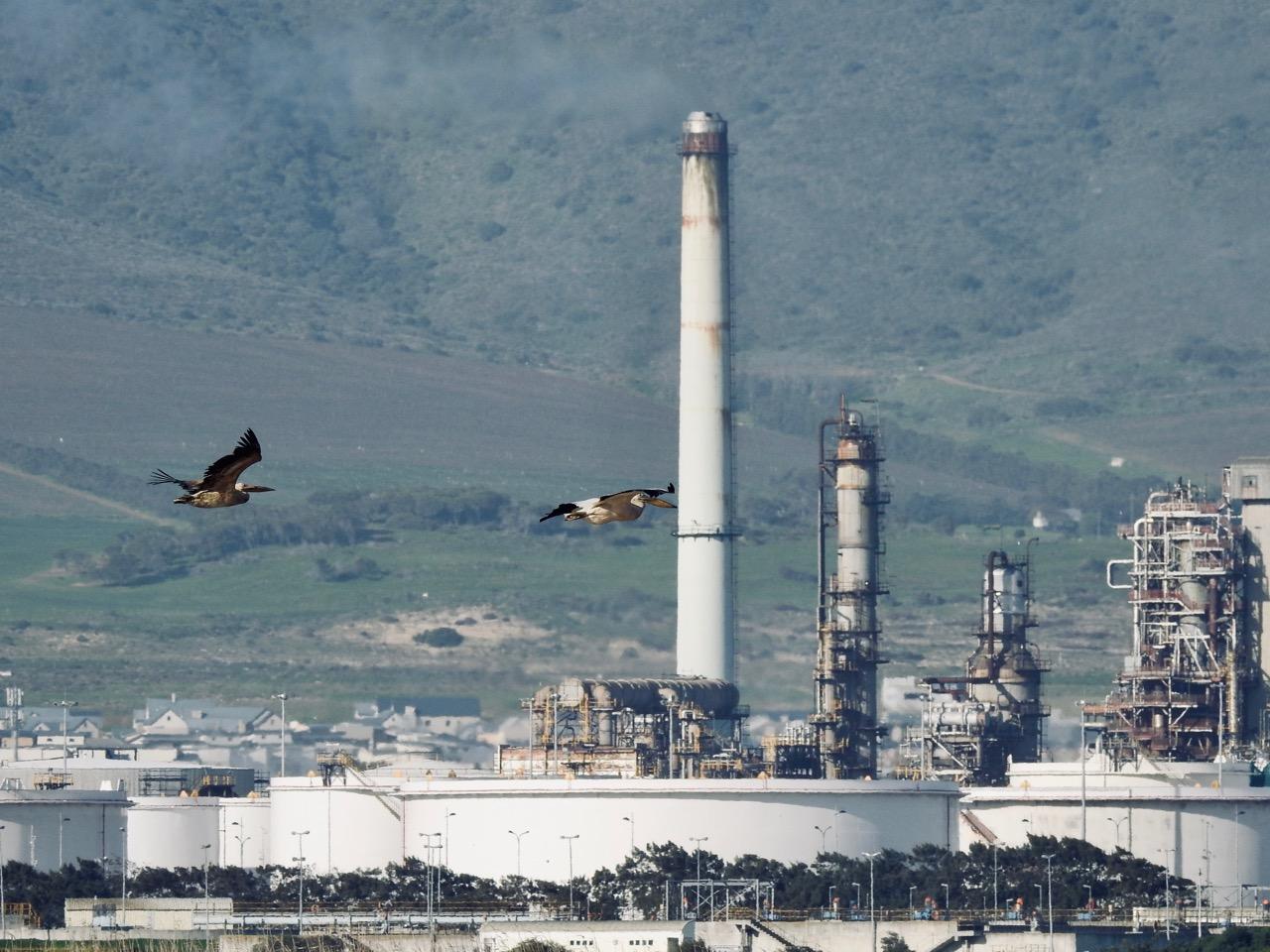
Causes of Climate Change
"We are all using energy all the time." Prof Naomi Oreskes
The increase in global warming can not be explained by natural activities but by human activities in particular fossil fuel. Coal powered power stations fuel all our demands for our modern lifestyle and its energy consumption including driving our factories; travel; technology; electronics and running our households. The burning of fossil fuels creates CO2 as a waste product.
"Carbon Dioxide acts like a blanket which absorbs the heat radiation from the earth surface, and that keeps the surface warmer" Dr James Hansen.
Before we started to burn coal the CO2 in the atmosphere was about 280ppm it is now over 400ppm.
Greenhouse gasses are continuing to rise which is very worrying. Forests are a crucial component to get rid of some of these emissions. Forest removal is happening everywhere, cleared for soya beans, pasture and mostly palm oil. We are causing deforestation without knowing it by using a large number of different products that have palm oil in it. The deforestation is accelerating.
"Nearly a third of our carbon emissions are caused by deforestation" Sir David Attenborough
The increase in global warming can not be explained by natural activities but by human activities in particular fossil fuel. Coal powered power stations fuel all our demands for our modern lifestyle and its energy consumption including driving our factories; travel; technology; electronics and running our households. The burning of fossil fuels creates CO2 as a waste product.
"Carbon Dioxide acts like a blanket which absorbs the heat radiation from the earth surface, and that keeps the surface warmer" Dr James Hansen.
Before we started to burn coal the CO2 in the atmosphere was about 280ppm it is now over 400ppm.
Greenhouse gasses are continuing to rise which is very worrying. Forests are a crucial component to get rid of some of these emissions. Forest removal is happening everywhere, cleared for soya beans, pasture and mostly palm oil. We are causing deforestation without knowing it by using a large number of different products that have palm oil in it. The deforestation is accelerating.
"Nearly a third of our carbon emissions are caused by deforestation" Sir David Attenborough
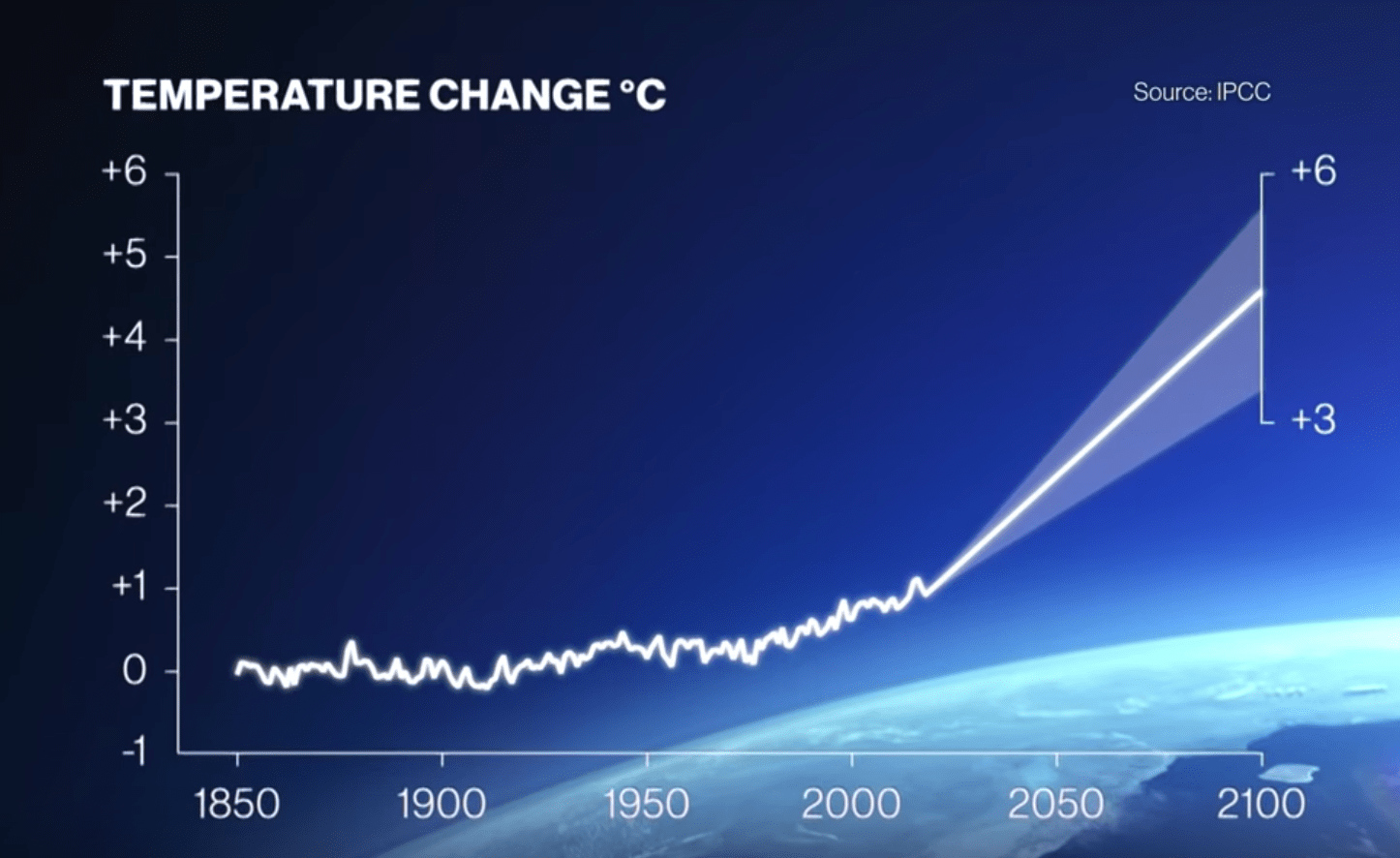
What does the future hold?
Based on very sophisticated computer models worked on by 1000's of scientists, if we carry on as we are we will hit 1.5˚C increase by 2040 - 2050. Increased heat waves and storms and unstable weather will make food production harder. The developing and poor counties will suffer first. Predictions are at the end of the century our temperature will be between 3˚C and 6˚C hotter.
"Over 600 million people live in coastal areas that are less than 10m above sea level" Sir David Attenborough.
The sea could rise between 80cm and 1m. Storms make this worse. There may be other tipping points we do not foresee yet making it even hotter. Tipping points examples include the meltdown of the ice in Greenland and Antartica; climate-induced dieback of the forest; release of methane which is a more potent greenhouse gas from the permafrost in the Arctic.
"Over 600 million people live in coastal areas that are less than 10m above sea level" Sir David Attenborough.
The sea could rise between 80cm and 1m. Storms make this worse. There may be other tipping points we do not foresee yet making it even hotter. Tipping points examples include the meltdown of the ice in Greenland and Antartica; climate-induced dieback of the forest; release of methane which is a more potent greenhouse gas from the permafrost in the Arctic.
What can we still do?
"It's our future we can't just let it slip away from us" Bella Lack.
Politicians responded well initially when the news of climate change was presented thirty years ago. But due to the slow changes in policy, economic factors, the pace of technology and industry pressures this go delayed. Industry misinformation caused climate deniers such as Donald Trump to start having an influence. To not do something is a lot more comfortable for politicians. You need to make your voice heard don't underestimate your significance.
"One day I decided this is enough I am not going to accept this anymore my future and everybody's future is at risk and nothing is being done, I have to do something" Bella Lack
Politicians responded well initially when the news of climate change was presented thirty years ago. But due to the slow changes in policy, economic factors, the pace of technology and industry pressures this go delayed. Industry misinformation caused climate deniers such as Donald Trump to start having an influence. To not do something is a lot more comfortable for politicians. You need to make your voice heard don't underestimate your significance.
"One day I decided this is enough I am not going to accept this anymore my future and everybody's future is at risk and nothing is being done, I have to do something" Bella Lack
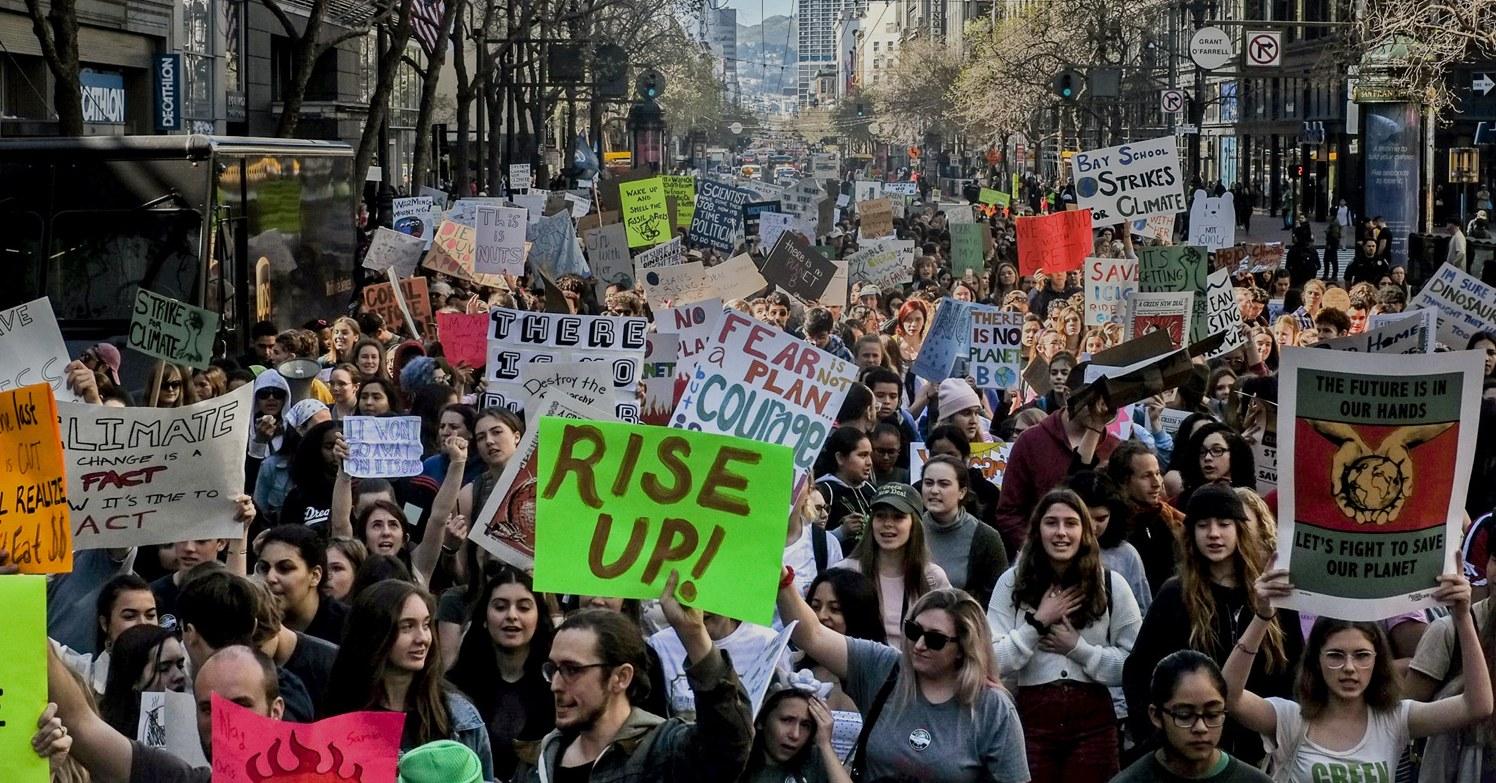
The science is explicit urgent action is required; we are at a tipping point to change history what we do in the next couple of years will affect nature that civilisations rely on and the next 100 years. Global agreement in Paris 2015 almost all countries agrees to keep temperature increase below 2˚C and limit it to 1.5˚C.
To stay below this threshold requires us to half carbon emissions by 2030 and zero carbon by 2050. Electricity production is 25% which we need to move to renewables including hydro, solar, wind. Solar power is now the cheapest power in 60 countries. 30% of UK electricity is from renewables.
Next solution is to move to the transport sector and move to battery powered and maybe hydrogen vehicles. Air transport is quite challenging to solve. Recently the world's first fully electric aeroplane made it over the channel. Hybrid passenger aircraft are being tested.
Reducing the current CO2 already in the air is very important. Reforesting and rewilding is very important as we are developing technologies we already have trees. Other techniques include direct air capture which may help in the future.
Average UK person emits 13ton CO2 per person per year. Insulate your house; reduce the number of things you buy and make it last — three steps for food consumption 1. eat everything you buy; 2. avoid air freight food; 3. reduce meat and dairy beef and lamb.
"What happens next is up to us all, I truly believe that together we can bring about the transformative change that is needed" Sir David Attenborough.
To stay below this threshold requires us to half carbon emissions by 2030 and zero carbon by 2050. Electricity production is 25% which we need to move to renewables including hydro, solar, wind. Solar power is now the cheapest power in 60 countries. 30% of UK electricity is from renewables.
Next solution is to move to the transport sector and move to battery powered and maybe hydrogen vehicles. Air transport is quite challenging to solve. Recently the world's first fully electric aeroplane made it over the channel. Hybrid passenger aircraft are being tested.
Reducing the current CO2 already in the air is very important. Reforesting and rewilding is very important as we are developing technologies we already have trees. Other techniques include direct air capture which may help in the future.
What can you and I do?
Average UK person emits 13ton CO2 per person per year. Insulate your house; reduce the number of things you buy and make it last — three steps for food consumption 1. eat everything you buy; 2. avoid air freight food; 3. reduce meat and dairy beef and lamb."What happens next is up to us all, I truly believe that together we can bring about the transformative change that is needed" Sir David Attenborough.
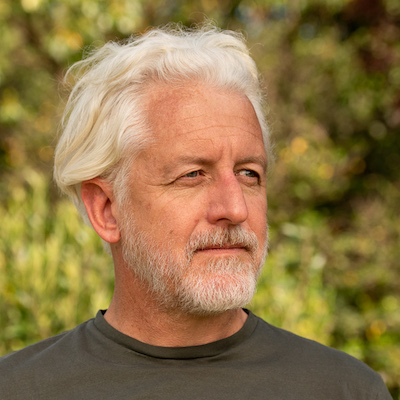
Adriaan BuysEnvironmentalist, Speaker & Green Strategy Consultant
Adriaan Buys, the founder of ConservationMag.org. As an environmental journalist and speaker, he is passionate about telling the stories of those who cannot speak. Adriaan assists businesses with green strategy design. He holds a PhD in Environmental Management. Contact him for consulting or keynote speaking engagements at adriaanbuys.com.
Shop for a cause
Conservation Mag is an Amazon affiliate, by clicking on the links to do your shopping you support us without paying anything extra.
Shop on amazon.com | amazon.co.uk
Shop on amazon.com | amazon.co.uk

